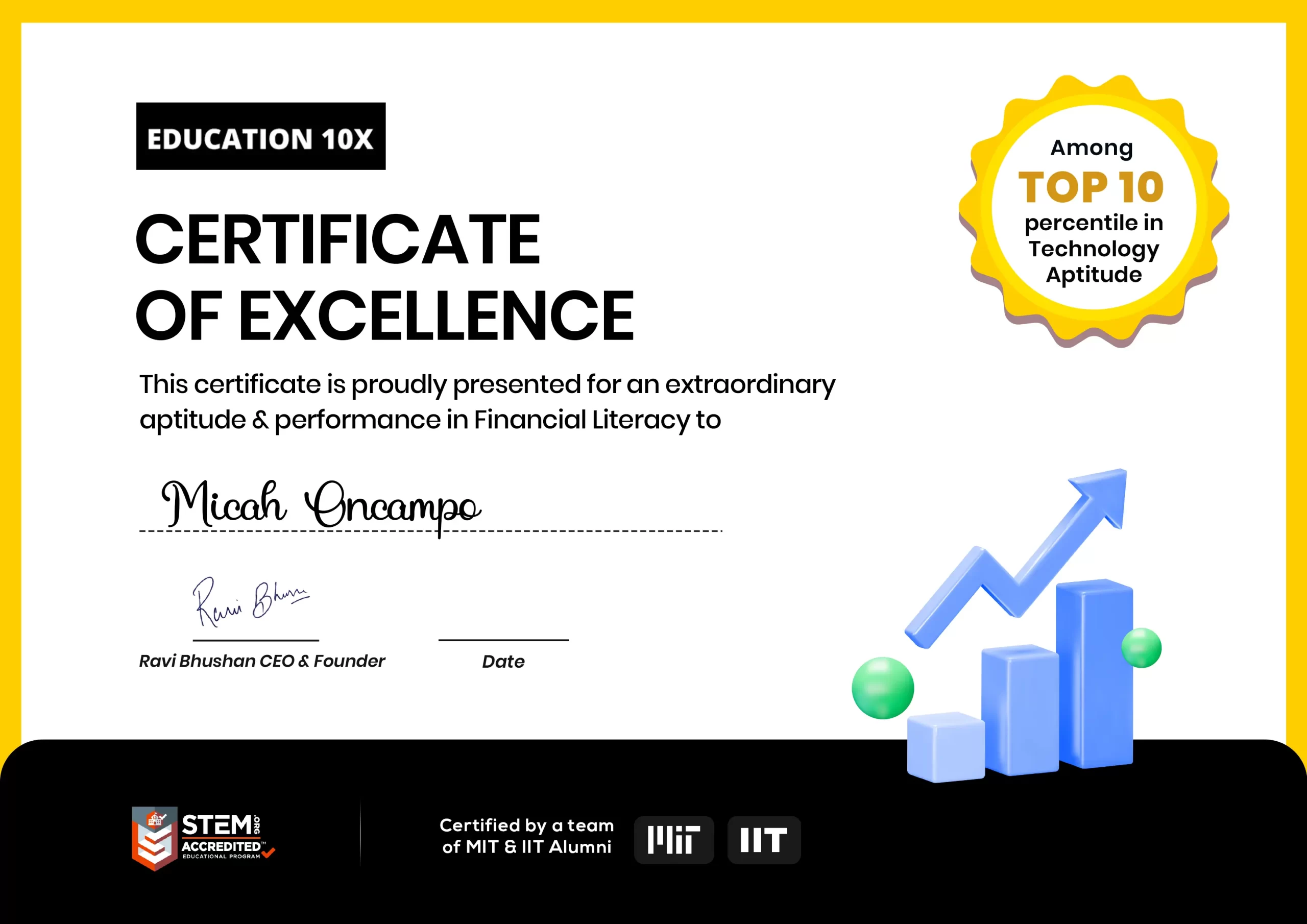Teaching kids how to handle their money is a crucial life skill that can prepare them for future success in the financial world. Most parents never care about giving financial education for kids, It is never too early to begin teaching your children sound financial practices, whether they are still in preschool or are already teenagers.
Some basic money lessons for kids include the value of saving, budgeting, and earning money. Learning how to manage money can help children make smart decisions about spending, saving, and investing.
In this article, we will explore some useful money lessons that you can teach your kids at different stages of their lives, so they can become financially responsible and successful adults.
Table of contents
Why is teaching money lessons to kids important?

Money is an integral part of our daily lives, and it’s essential to have a good understanding of financial management to succeed in life.
1. Teaches valuable life skills
Learning how to manage money is a vital life skill that children will use throughout their lives. By teaching them about budgeting, saving, investing, and avoiding debt, you are setting them up for success in the future. These skills will help them make informed financial decisions, no matter what their income level is.
2. Develops good financial habits
By instilling good financial habits in kids at an early age as much as you encourage good habits for kids, you are setting them up for financial success. They will learn the value of saving, avoiding impulse purchases, and investing in their future.
Apart from these, children should be taught about money for a variety of other reasons as well reasons. First off, it might aid them in averting financial issues later in life. Financially knowledgeable people are less likely to overspend, accumulate debt, or declare bankruptcy, according to studies.
Second, educating kids about money can help them form savvy money practices. Budgeting for kids, saving, and investing are a few examples of these behaviors. These practices can assist them in achieving their financial objectives, such as home ownership or early retirement.
Third, educating kids about money might help them have a helpful mindset toward it. This can assist them in avoiding rash financial decisions and assisting them in choosing choices that are beneficial for them.
Teaching kids about money can be done in a variety of ways. Talking to them about it is one method. Inform them of your income sources, spending habits, and saving habits. Give them the chance to work a part-time job or perform household duties to earn money.
Playing games with kids is another approach to teach them about money. Children can learn about financial concepts like saving, investing, and creating budgets by playing a variety of instructional games.
Finally, providing a good example for kids is another way to teach them about money. Show them how you manage your money by saving for retirement and paying your bills on time.
Key money lessons for kids :

The importance of financial literacy for students early on cannot be overstated. Parents and educators may help youngsters become informed decision-makers and create sound financial practices by teaching them important financial lessons.
1. The value of money
Teach kids that money doesn’t grow on trees and that it’s earned through hard work. Encourage them to save money from their allowance or earnings, so they can appreciate the value of money.
2. Budgeting
Teach kids how to budget by showing them how to allocate money for different expenses, such as toys, snacks, and savings. By learning how to budget early on, kids will be better equipped to manage their finances as they grow older.
3. Saving
Show kids how their savings can add up over time and how they can use it to achieve their goals. Lets helps them to start best saving accounts for kids.
4. Needs vs. Wants
Teach kids the difference between needs and wants. Help them understand that they should prioritize their needs over their wants and that they need to save up for their wants.
5. Earning Money
Teach kids about the different ways they can earn money, such as doing chores, selling items, or starting a small business. This can help them develop a strong work ethic and an entrepreneurial spirit.
6. The danger of Debt
It’s crucial to inform your children about the risks of borrowing money because debt may be a significant financial burden. This can be achieved by explaining to them how debt can cause financial stress and how challenging it can be to pay it off. Additionally, you may assist them in realising the value of budgeting their money and staying out of debt.
7. The importance of giving back
It’s crucial to instil in your children the value of helping others. Encourage them to donate money to a good cause or donate their time to a nearby soup kitchen or animal shelter to do this. Additionally, you can teach kids the value of helping others and how doing so can change the world.
Activities to teach kids about money:

For their future prosperity and financial literacy, it is essential to teach children about money. We can equip children to make wise decisions by involving them in activities such as financial literacy games for kids, money games, banking game for kids etc that encourage financial literacy and responsibility. The following activities can be used to teach kids about money:
1. Play store: Set up a pretend store and let your child practice buying and selling items with pretend money. This can help them learn about money transactions and basic maths skills.
2. Coin sorting: Give your child a pile of coins and have them sort them by size, shape, and value. This can help them learn about the different denominations of coins and their values.
3. Saving Challenge: Challenge your child to save a certain amount of money each week or month. Offer them a reward for reaching their savings goal to encourage them to keep saving.
4. Money board game: Play a board game that involves money, such as Monopoly, Pay Day, or The Game of Life. These games can help kids learn about money management, investments, and decision-making.
5. lemonade stand : Kids can use this to teach them about the fundamentals of managing a business, like setting prices, giving change, and providing customer service.
6. give them allowance: They will get financial management and budgeting skills as a result.
7. Take them to the supermarket: This is a fantastic chance to discuss price comparisons and shrewd purchasing decisions.
8. Discuss your personal financial choices with them: Tell them how you decide where to spend, where to save, and how to invest your money.
You may encourage your children to have a healthy relationship with money by including it frequently in your talks with them. Additionally, you may assist them in preparing themselves for future financial success by teaching them the fundamentals of financial literacy.
Resources for parents:

Financial literacy is an essential life skill that every youngster should learn in today’s complicated and dynamic environment. The financial knowledge and habits of children are greatly influenced by their parents. There are many resources available to help parents with this crucial responsibility of effectively teaching children about money.
1. Books: There are many books available on teaching kids about money, such as “The Everything Kids’ Money Book” by Brette Sember and “Smart Money Smart Kids” by Dave Ramsey and Rachel Cruze. These books can offer practical advice and ideas for teaching kids about money.
2. Online resources: There are many websites that offer free resources for teaching kids about money, such as Money as You Grow, which provides age-appropriate financial lessons for kids, and JumpStart.org, which offers interactive financial games for kids.
Brightchamps offers various classes for students to choose from. In order to get the best possible results for learning, the curriculum has been designed specifically for each age range. The platform gives children access to an incredible variety of resources and materials, which enables them to construct a strong foundation in financial literacy.
3. Apps: There are many apps available that can help kids learn about money, such as Savings Spree, which teaches kids about saving, spending, and donating, and PiggyBot, which helps kids manage their allowance and savings.
4. Nonprofit organizations:
There are many non-profit organizations that offer financial education resources for kids, such as Junior Achievement and the National Endowment for Financial Education.
Conclusion
Teaching kids about money is crucial for their future financial success and well-being. By incorporating money lessons into their everyday activities and using these resources, parents can give their kids the tools they need to succeed in managing their finances and achieving their financial goals. With the right knowledge and skills, kids can become financially independent and confident about managing their finances, which will benefit them throughout their lives.
To get your hands on more such educational, parenting and free resources on coding, robotics, game development, etc., do check out the Brightchamps Blog Page now!
Join the revolution in education with Brightchamps. Our courses in robotics, coding, and financial literacy empower kids to become confident and capable learners.
Frequently Asked Questions
The first year of a child’s life is often considered to be the most expensive. This is because there are many one-time expenses associated with having a new baby, such as buying a crib, stroller, car seat, and other necessary gear.
Some parents might find that the preschool years, specifically ages three to five, tend to be less expensive than other stages of childhood.
Raising a child can be a significant financial investment, but the expenses will vary depending on the family’s circumstances, location, and choices.
It is the responsibility of parents to decide when and how to expose their children to managing money.
Every stage of childhood and adolescence can have its own unique joys and challenges, and there is no single age that is universally considered the “golden age” for children.
It is essential for parents to help children develop a healthy relationship with money by teaching them about financial responsibility and the value of saving, spending, and sharing.
To ensure appropriateness and promote responsible money management skills, a child’s financial resources should be in line with their age and level of responsibility.
The ideal time to begin saving money is when you are young, ideally in your 20s. Your savings can increase dramatically over time thanks to the power of compound interest, giving you greater financial stability and opportunities in the future.
It is never too late to start developing healthy financial habits, and it is possible to change old habits and replace them with new, more positive ones.
Overall, at age 7, children are still developing their financial literacy skills and will need guidance and support from their parents to become more financially independent. Parents can take this opportunity to teach their children about budgeting, saving, and spending wisely to help them develop good financial habits.
It is contingent upon the circumstances and the ideals that the parents hope to instill. Some contend that monetary incentives can help students learn about personal finance, while others assert that non-financial incentives are better at promoting intrinsic motivation and character growth.


 We are an army of educators and passionate learners from BrightChamps family, committed to providing free learning resources to kids, parents & students.
We are an army of educators and passionate learners from BrightChamps family, committed to providing free learning resources to kids, parents & students.








